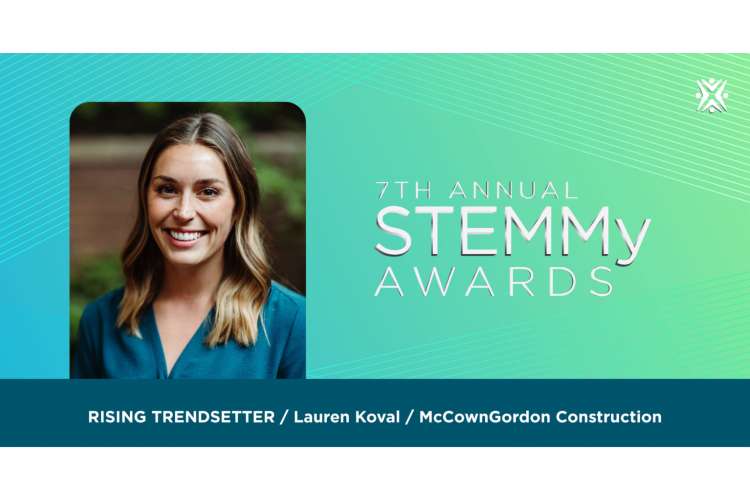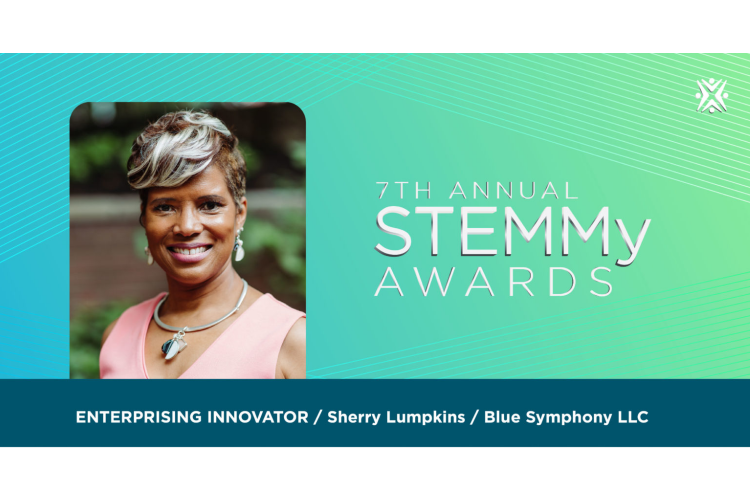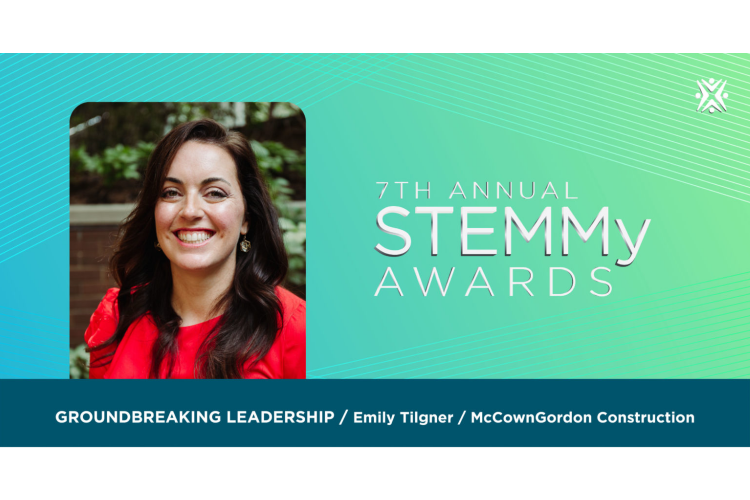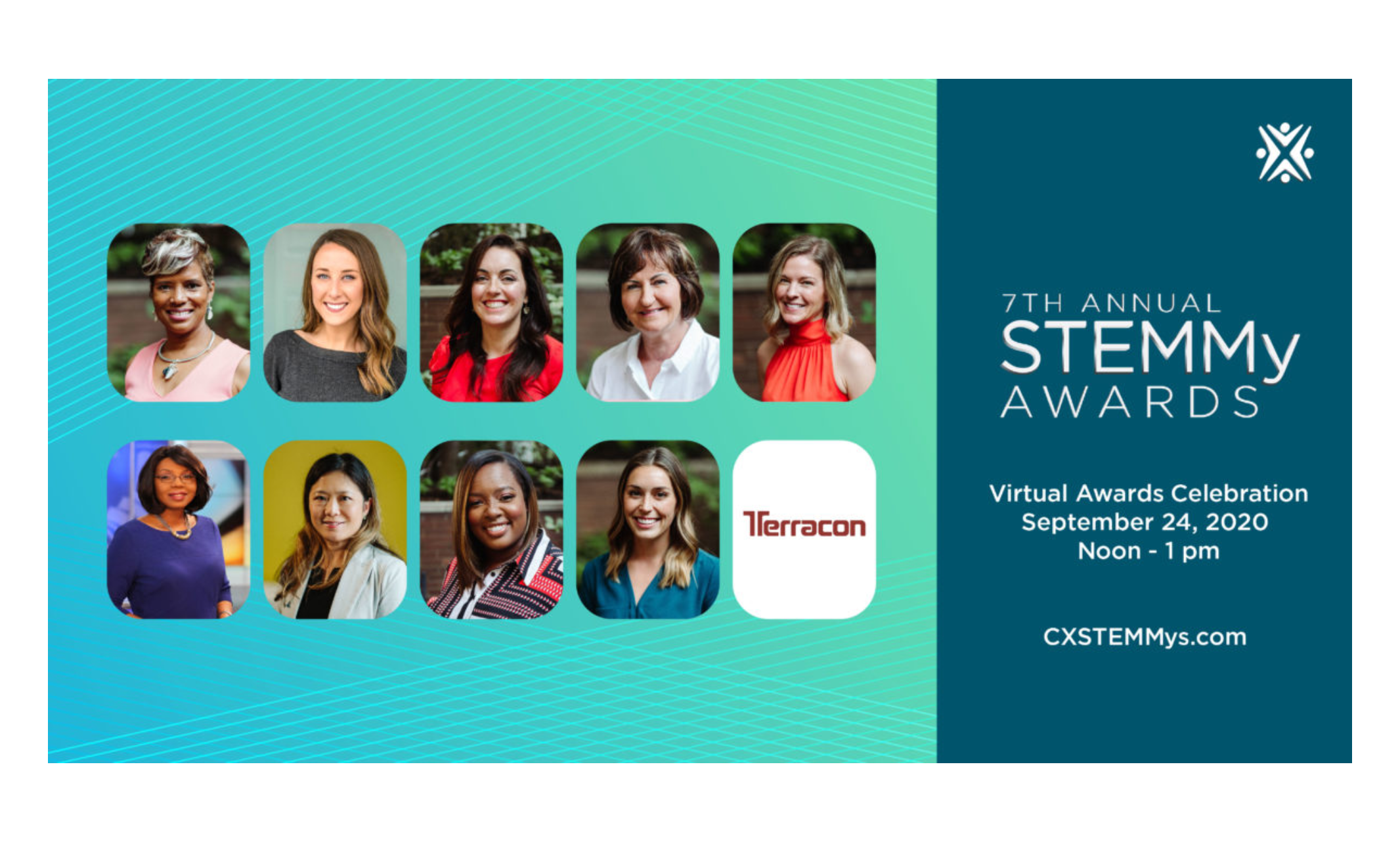The 7th annual STEMMy Awards hosted by Central Exchange highlighted a host of women in STEM who are blazing trails and breaking barriers in the fields of science, technology, engineering and math. In true UMKC fashion, several of this year’s honorees are Roos hailing from the School of Computing and Engineering.
Sherry Lumpkins (BACS ’93), owner and principal of Blue Symphony and 2020 Vanguard Award recipient – Enterprising Innovator
Lauren Koval (BSCE ‘ 17), engineering manager at McCownGordon Construction – Rising Trendsetter
Emily Tilgner, civil and mechanical engineering advisory board member, vice president of engineering services at McCownGordon Construction – Groundbreaking Leadership
Our award recipients shared their passions for computer science and engineering, the importance of networking and how they contribute to closing equity gaps in STEM.
What sparked your interest in engineering?
Lumpkins: I stumbled upon it as a career option. Computers weren’t ubiquitous when I was in high school. I took one class and thought it was interesting but didn’t think about it as a career path until I had an internship in college where I worked on a computer. When I began diving deeper into how computers were made and I found that I wanted to learn more and eventually switched majors from accounting to computer science.
Tilgner: I always loved math and science classes and really loved puzzles and problem-solving. My parents, who were both educators, helped me explore areas of study that they thought would be a good match. Engineering was a great fit for me.
Koval: In junior high school, my advanced algebra teacher, Mrs. Docking, invited a woman engineer into our class to speak to us about her career. Listening to her speak really sparked my interest and from that day I decided I wanted to pursue engineering!

How did UMKC prepare you for the career you lead today?
Lumpkins: It was there that I decided to pursue a career in STEM, and I absolutely got great fundamentals that equipped me to be able to keep up with the changing pace in computer science.
Koval: I had a great deal of support during my time at UMKC! In addition to studying Engineering, I was also a Trustees’ Scholar and played on the Women’s Soccer Team, so I stayed pretty busy. Each of those areas of my life required a lot of time and dedication, but they also provided me with a lot of help and support. I learned to work hard and push myself, and also when to ask for help and guidance. I’m thankful for the life lessons I learned and have carried into my career.
"It used to be 'it’s not what you know, but who you know.' I’ve heard a more recent take of this, 'it’s not what you know or who you know, but who knows you.'”
Why is it important to mentor and help give back to future engineers?
Tilgner: I believe the earlier we can support women in this field, the better the chance for retaining them. Through various experiences mentoring youth and students, I’ve found that just having a trusted advisor, someone to talk to, or just knowing that someone has gone through that same thing, who can understand your point of view, provides support for young women pursuing this career.

How do you help to close equity gaps in STEM?
Lumpkins: I very intentionally want to use the internship opportunities I have available to address the equity gaps. I can’t solve all the problems in the world, but I can do my tiny piece. When I started the Blue Symphony internship program, I wanted to create an opportunity for underserved groups – students of color and women – and I try to be very instructive to help equip students for experiences they’ll have in their careers. I want to give them skills they can add to their resume.
Tilgner: The fact that my engineering team within a construction company is majority female speaks louder than any story I could tell or any metric I could list. To support and nurture women, you have to hire them first and give them a platform in which to shine. In addition to this role, I push for multiple women in my company to be nominated for various awards, leadership programs, and to be recognized for promotions and prestigious projects. We are getting closer to 50% representation in these opportunities, which I believe will help our company come closer to an executive leadership team with the same ratio. I believe it is not enough to only support the women. Creating a dialogue with my male colleagues and industry partners about equal opportunities and representation can exponentially expand the opportunities for everyone.
"Seeing women, and Black women, recognized in STEM fields shows little girls that if someone who looks like them can do it, they can do it."
Why is it important to network and make connections as you build your career?
Tilgner: It used to be “it’s not what you know, but who you know.” I’ve heard a more recent take of this, “it’s not what you know or who you know, but who knows you.” You can never know what conversation or contact is going to help you along the way. Not every relationship should be viewed as transactional, but why not give yourself every opportunity on the way?
Koval: Networking and making connections play a huge part in the success of your career. I was very fortunate to form many connections while at UMKC through my time in the Trustees’ Scholars program, one of which led to my internship and now career at McCownGordon Construction! Forming relationships with people both inside and outside of my company has helped me gain knowledge and make connections that make my job both more rewarding and more fun! It has also allowed me to meet and help others within the same and different industries. It is amazing what a small world it is, once you are willing to put yourself out there and meet new people.
"I very intentionally want to use the internship opportunities I have available to address the equity gaps. I can’t solve all the problems in the world, but I can do my tiny piece."
Sherry, what has your journey been like starting and growing a Black/woman-owned technology company in Kansas City?
Lumpkins: I think that being an entrepreneur has its own set of struggles, so adding on being a woman and being Black there is three-times the challenge, but those things shouldn’t be prioritized. It’s important to be aware of those things but you’ve got to do what you’ve got to do. When I walk into a room, I’ve had to figure out how to make people listen to me but those are the cards I’m dealt, and it’s been worth it. Once you’ve proven that you know what you’re talking about, it’s done.

Women weren’t always able to pursue careers in STEM, let alone receive credit for their innovation and leadership. What does this recognition mean for you?
Tilgner: It is huge, but it is not enough. In the words of Ruth Bader Ginsberg: “When I'm sometimes asked ‘when will there be enough (women on the Supreme Court?)’ and I say, 'when there are nine,' people are shocked. But there'd been nine men, and nobody's ever raised a question about that.” I would like to get a point where women make up at least an equal percentage, if not more, in STEM fields because why not?
Koval: This recognition means so much to me. I am so thankful to all of the women who helped blaze the trail in the STEM fields, and I hope to do the same for those following me. It’s incredible to be recognized, but I really wouldn’t be where I am today without all of the people that helped and supported me throughout my education and thus far in my career. There are too many to name, but I want to say thank you to all of them and I plan to keep pushing on!
Lumpkins: This recognition is important. I’ve heard the story so many times where a young woman pursuing STEM is the only one in the classroom. I’ve heard women being inadvertently being chased away. I believe that with STEMMy, and with the Vanguard Awards, it’s a testament for young girls that they can do this. In their formative years, children behave more equally, but that kind of fades away around their middle school years. But seeing women -- and Black women -- recognized in STEM fields shows little girls that if someone who looks like them can do it, they can do it.
"
I’m thankful for the life-lessons I learned and have carried into my career."
What advice do you have for students wanting to follow in your footsteps?
Tilgner: Ask for advice but listen to yourself – you are going to have to forge your own pathway and it will be as unique as you are. Create a support system not just personally but professionally. Find people that will be honest with you. Know that you deserve what you want just as much as anyone else but don’t put others down in order to build yourself up. Last but not least, in your way, don’t forget to help those ladies next to and behind you.
Lumpkins: Do it! Be aware but not discouraged. Be willing to learn all your life. The STEM field is HUGE, there’s no one kind of field. Don’t assume that because you have different interests you can’t pursue the career you want.
Koval: Work hard, stay motivated even on the tough days, develop as many relationships as possible, and don’t be afraid to ask for help! Something I have to tell myself (probably daily) is that mistakes are going to happen, and as long as I gave it my all, the rest is out of my hands. That’s hard to practice for most of us with an “engineering-mind,” but I find that the people who are most successful in my company and in other companies aren’t afraid to make a mistake because they know they will learn from it and are at least willing to try a new approach when needed.

